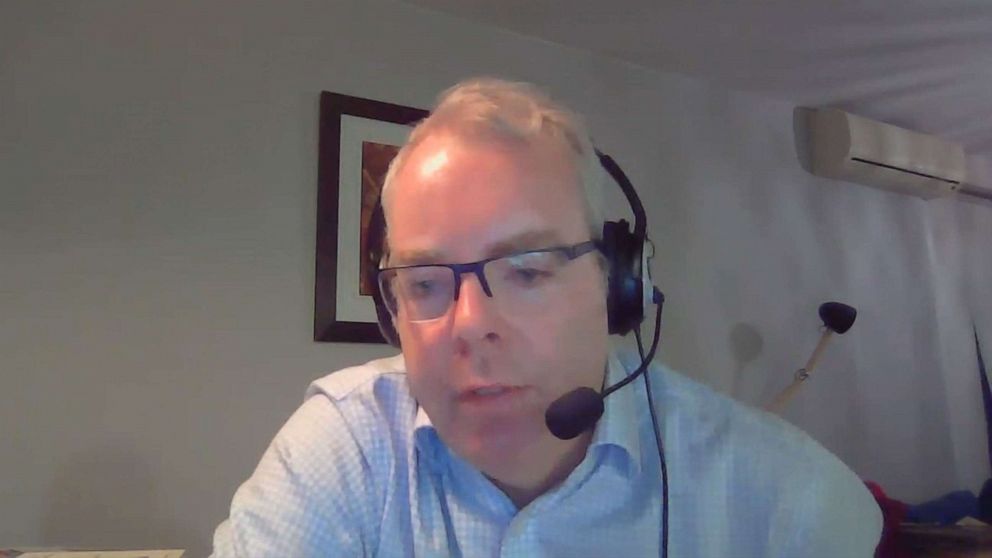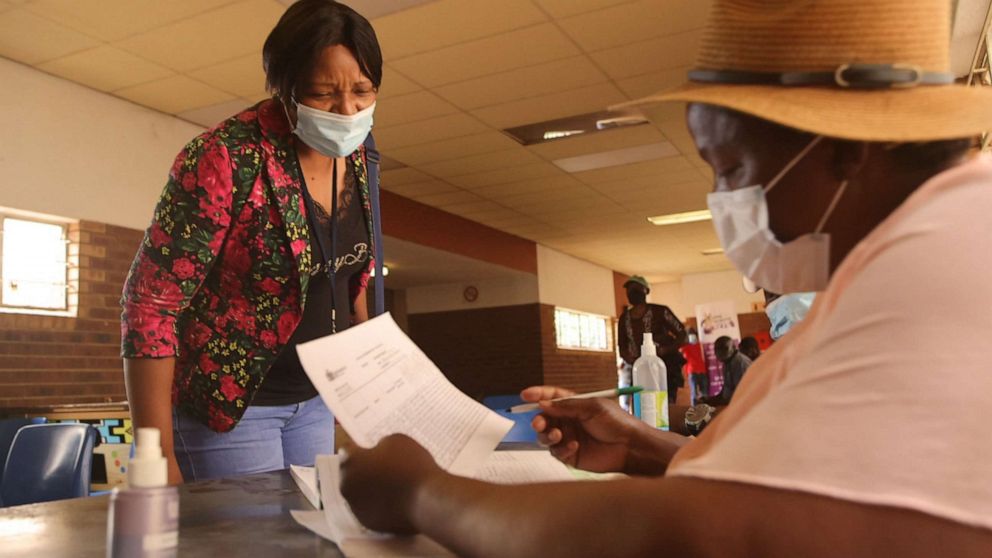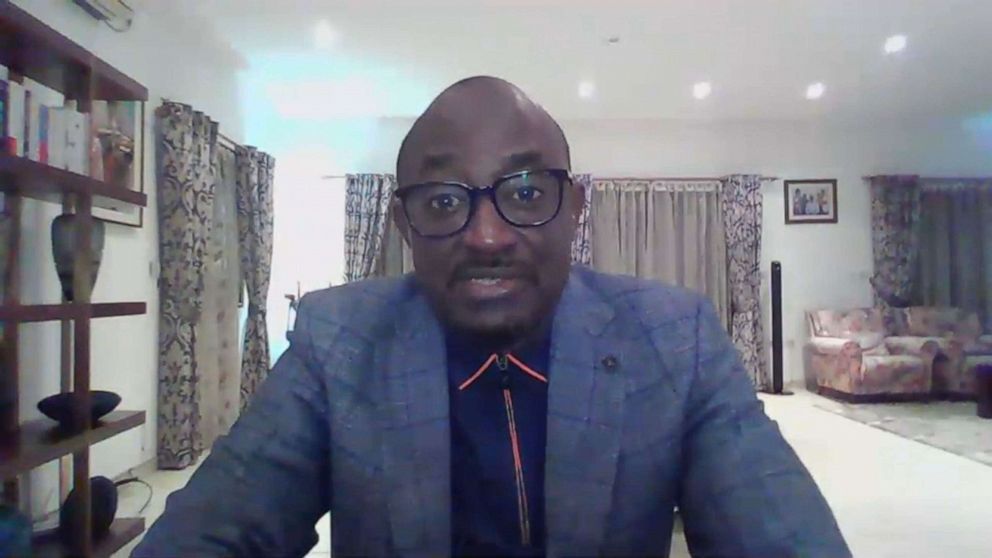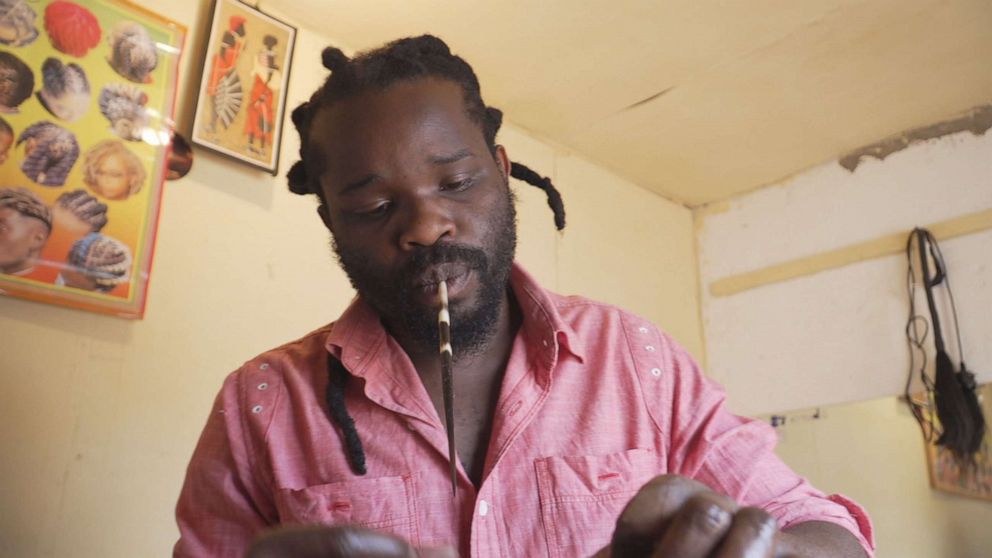Vaccine hesitancy in South Africa causes spread as omicron cases grow: Experts
Omicron now accounts for the vast majority of new cases in South Africa.
The omicron variant has exponentially spread in South Africa in a short time, and now experts are warning that widespread vaccine hesitancy and the lack of basic medical supplies in the region may lead to an explosive outbreak of new cases.
In just two weeks, the number of new COVID-19 cases in South Africa has surged more than 1,600%, according to an ABC News analysis of data from the National Institute for Communicable Disease. The increase coincides with the discovery of the omicron variant in southern Africa and comes as countries around the world institute protective measures against the new strain.

"We were going through a period of actually much lower level transmission of the virus and we were getting optimistic that we might have a bit of respite again from this virus," said Dr. Richard Lessells at the University of Kwazulu-Natal in South Africa. "Unfortunately, that did not turn out to be the case."
Before the emergence of omicron, Lessells and a team of doctors wrote a paper on the state of COVID-19 in Africa. The last sentence in his team's abstract warned of what could come.
"Africa must not be left behind in the global pandemic response, otherwise it could become a source for new variants," said the paper.
Omicron now accounts for the vast majority of new cases in South Africa and has reached at least 10 other African countries and the French territory of Reunion. South Africa's Gauteng Province -- home of the major city of Johannesburg -- has become the epicenter, where cases are roughly seven times higher than the nation's other provinces, according to government data.

"I think people have all lost hope when it comes to protection from COVID-19. I think many of them have developed the mindset that 'whatever happens, happens.' They have lost hope and are not worried about this new variant as compared to the one before," said Busisiwe Vilakazi, a resident of Johannesburg.
Tshwane District Vaccine Coordinator Dr. Mpho Shabangu stressed, now more than ever, the importance of getting shots in arms. She led a vaccination push in Mamelodi, a town about an hour outside of Johannesburg.
"All hands are on the deck. So what we are doing currently, we are trying also to make sure that we take vaccines to the people. We'll go in and have a pop-up site in an area so that people can come and vaccinate," said Shabangu.

She said that many residents in Mamelodi need to be convinced to get the vaccine.
"We are actually experiencing a lot of vaccine hesitancy. I think it's not that people don't want to be vaccinated. People just need more information on the vaccines, especially on the issue of safety," said Shabangu.
"We know [there] are a few countries in Africa that have discarded some of the doses and that the simple reason is that these countries received vaccines that are near expiring with a very short shelf life," said Dr. Richard Mihigo, the coordinator of Immunization & Vaccines Development in the World Health Organization Regional Office for Africa.

As it stands, roughly 7% of Africa's population has been vaccinated, according to the Africa Centers for Disease Control and Prevention. The benchmark set by the WHO is to have 40% of the continent's population vaccinated by the end of the year.
Issues like logistic hurdles are hampering efforts to reach that milestone, according to the WHO Regional office for Africa.
In Kenya, where less than 6% of the country is fully inoculated, five million shots have arrived within the past two weeks.
Unvaccinated resident Julius Tuyioto said he traveled miles to a hospital, only to leave without a shot.
"While we were still standing there, we were told that the vaccine was over. So, I was discharged and was not interested in following it up again," said Tuyioto in a statement translated to English.
Clinical officer Gerald Yiaile said their vaccine supply cannot keep up with demand.
"We've run out of stock five days ago. We have already ordered our supply again," said Yiaile.
In larger cities, like Nairobi, some residents say they are not ready to roll up their sleeves. Salon owner Godfrey Maale telling ABC News he's still not convinced the vaccine works.
Salon owner Godfrey Maale said he's still not convinced.
"I don't want to be vaccinated because it means nothing to me. Two of my friends got vaccinated. After [a] few days… they got [the] virus," Maale said. "You can be vaccinated and you can get virus again, so it's nothing."
Mihigo, the WHO regional coordinator, said social media is aiding the spread of vaccine hesitancy.
"We've seen in some countries really where the influence or misinformation that has been spreading through the social media has had some devastating effects in terms of acceptance of vaccination," said Mihigo.
Continent wide, an estimated 85% of cases in Africa go undetected, according to the WHO.
In October, UNICEF projected that Africa could be short 2.2 billion syringes in 2022.
Despite the shortfalls, Shabangu said she sees hope for the future and that more people are beginning to get vaccinated as case numbers increase.
Lessells said it's important to remember that the pandemic is global and won't be stopped by borders.
"This is a global pandemic and it needs a global response," he said. "We're all in this together and we need to act responsibly as a global community."
ABC News' Bea Wangondu contributed to this report.





